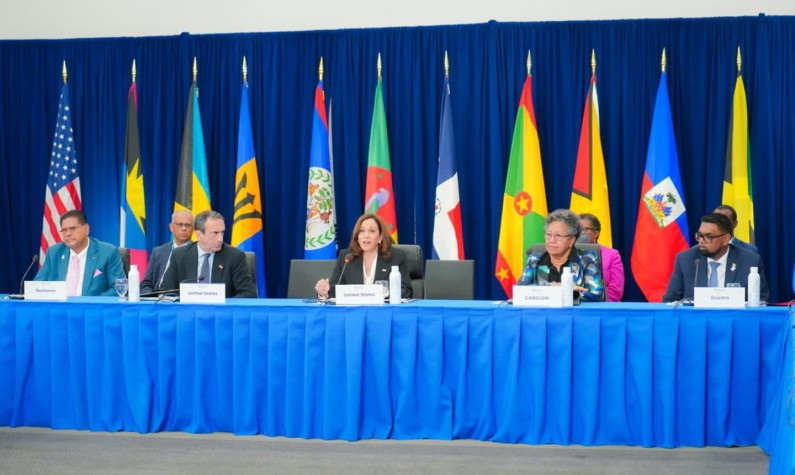
The Caribbean and the United States are making moves to strengthen relations in the areas of energy, security, and infrastructural development.
During a meeting with US Vice President Kamala Harris, Caribbean nations were offered the scope to access funding for their energy infrastructural projects through the Partnership to Address the Climate Crisis 2030 (PACC 2030) which is a mechanism initiated by the United States of America to address energy security and climate crisis within the Caribbean Community (CARICOM).
Under the agreement, the US intends to support Caribbean countries’ energy infrastructure and climate-resilient projects from beginning to end.
President Irfaan Ali has welcomed the partnership.
During the meeting with the Caribbean Leaders, the US Vice President said the climate issue remains an existential crisis for the entire planet.
She stressed that “the Caribbean is on the frontline of the crisis”, while giving the assurance that the US will work with Caribbean countries to identify new clean energy projects and will provide technical assistance to ensure the projects are viable and appealing to investors.
“We will bring them (investors) on road shows to showcase and we will improve access to development financing which will make these projects a reality. We will engage with the private sector at every stage of this work because their involvement is essential to making this productive and meaningful,” Harris assured the Caribbean leaders.
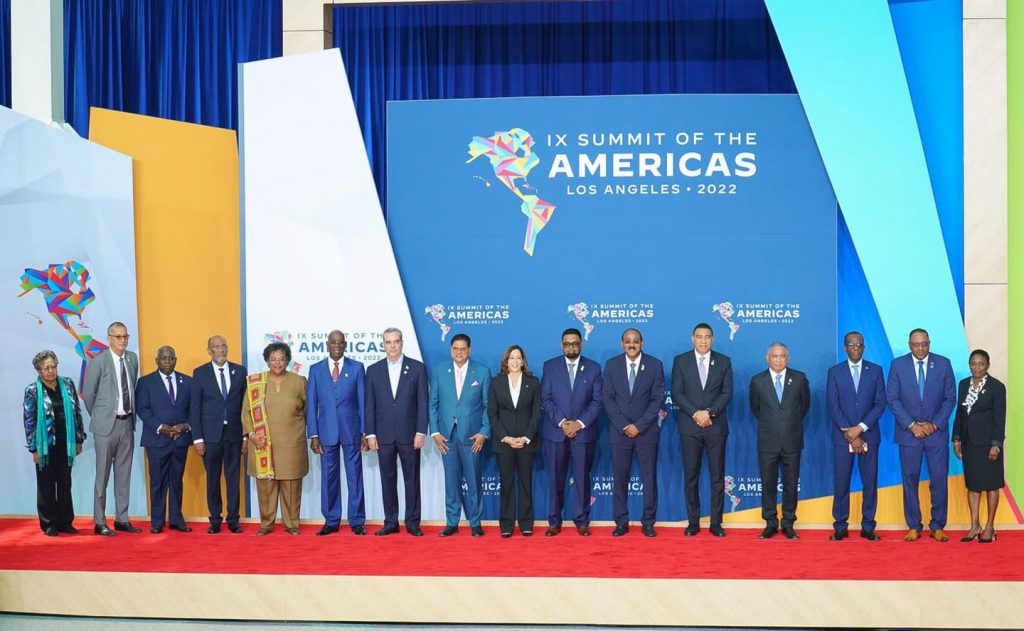
Vice President Harris said when the transition to clean energy is accelerated, economic opportunities for the entire region would be unlocked.
“When we work together to address this urgent threat, it benefits the people of the United States and the people of the Caribbean and all of us of course benefit by reducing emission.”
The US-Caribbean relation remains a priority, Harris noted. She said while the climate crisis is one of the US’ highest priorities, there are still other issues that are important and must be addressed together.
CARICOM’s Secretary-General, Dr. Carla Barnette relayed that energy security in the Caribbean is a critical matter as countries seek to transition their energy systems to more modern, clean, and reliable supplies of renewable energy. She said member states are heavily dependent on fossil fuels for energy needs and are predominantly net energy importers.
“Our position is to optimize our indigenous sources as we make that judicious transition to renewable resources. We are therefore pleased to have this conversation. We are aware that our own public sector’s fiscal constraints limit the extent to which our governments can finance a transition to renewable resources and therefore the undertaking to provide sources of financing that our private sector can access is very important.”
President Irfaan Ali said regional leaders need to work closer to play their role in tackling the many issues related to climate change.






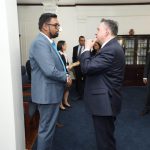
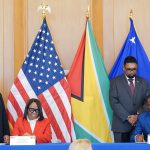

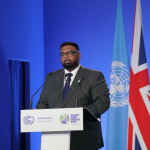

You must be logged in to post a comment Login